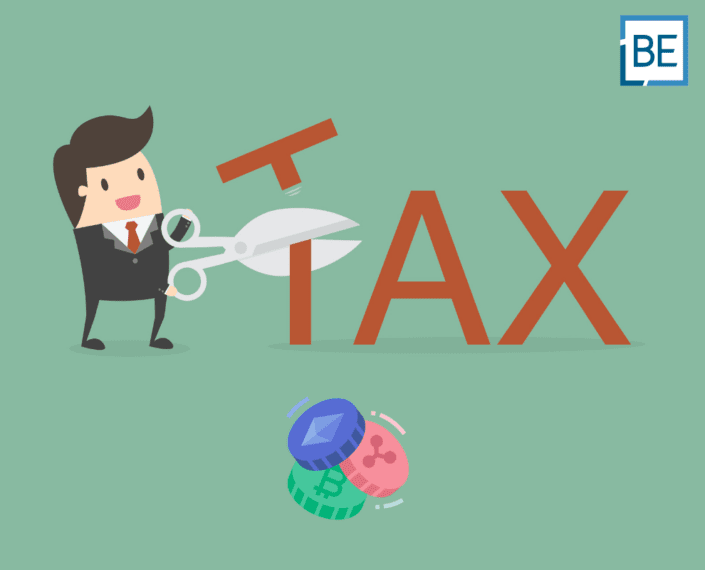Belaws Home ›› Thailand ›› Blog ›› Firing Employees: A Guide for Employers in Thailand
legal
Firing Employees: A Guide for Employers in Thailand
21/03/2023
Firing employees is never an easy decision, but sometimes it is necessary for the well-being of your business. However, several legal and ethical considerations must be considered when terminating an employee in Thailand.
This guide will provide an overview of the process and help you navigate the legal requirements.
Key points
- Employers must provide employees with advance notice of termination (or extra payment in lieu of notice)
- Employers can only terminate employees for just cause, such as serious misconduct, incompetence, or breach of contract.
- Employers must also pay severance to terminated employees who have worked more than 120 days.
- Employees who wish to file a wrongful dismissal claim with the Labour Court must provide evidence that one or more of their legal rights were violated due to the termination.
What should be considered when firing an employee?
The following points should be considered by a company when looking to terminate an employee from the company:
Have a valid reason for termination.
In Thailand, employers can only terminate employees for just cause, such as serious misconduct, incompetence, or breach of contract. If you terminate an employee without a valid reason, you could be liable for wrongful termination and face legal consequences.
Follow the correct procedure.
Terminating an employee in Thailand involves several steps, including providing written notice, conducting an investigation, and holding a termination meeting. It is important to follow the correct procedure to ensure the termination is legal and fair. Failure to do so could result in a claim for unfair dismissal.
Provide adequate notice
Under Thai law, when terminating an employee, the minimum advance notice period a company can provide is one month. If an employer wants to terminate the employee immediately, they can pay one month’s salary in lieu of the notice
Pay severance pay
In addition to notice; employers are also required to pay severance pay to terminated employees who have worked for more than 120 days. The amount of severance pay is based on the length of service and the employee’s last salary.
Follow the due process for the termination of a foreign employee.
If you terminate a foreign employee in Thailand, additional legal considerations must be considered. For example, you may need to notify the Ministry of Labour and Social Welfare to arrange the cancelation of his work permit. Canceling a foreign employee’s work permit will also cancel their visa automatically.
What are the reasons a company can use for firing an employee?
Section 119 of the Labour Protection Act stipulates that severance pay is not required to be paid by the company to an employee if their employment is terminated for any of the following statutory reasons:
- Dishonest performance of their duties or the intentional commission of a criminal act against the company
- Willfully causing damage to the employer
- Committing negligent acts resulting in serious damage to the employer
- Violating the company’s lawful and fair work rules, regulations, or orders after receiving prior written notice from the company
- Neglecting their duties for three consecutive workdays without reasonable cause, regardless of intervening holidays
- Being sentenced to imprisonment by a final court judgment.
Can you fire an employee for any other reasons?
The process is different when looking to fire an employee for a nonstatutory reason (i.e. not one of the reasons listed above) than it is for a statutory reason. In this situation, an employer must stick to the following procedure.
- The employer must provide a written notice of termination that includes relevant details such as the reason, date, and terminal information.
- To be effective from the following wage payment date, a written notice needs to be provided by the due date of wage payment, as per section 17 of the Labour Protection Act.
- After the termination date, the employer must pay statutory wages and overtime pay within three days. Furthermore, severance pay, reimbursement for unused vacation time, and payment in lieu of advance notice should be paid on the day of termination.
- Per the Revenue Code, the employer must provide the withholding tax certificate for the compensation paid to the employee after deducting the withholding tax from compensation derived from the termination.
- According to section 585 of the Civil and Commercial Code, if requested by the employee, the employer must issue a job certificate containing the employee’s work history and the number of years worked for the company.
- The employer must inform the fund manager of the employee’s termination, as per section 23 of the Provident Fund Act, so that the fund can be paid out to the employee in compliance with the fund’s Articles of Association within 30 days of the membership termination date.
What is the notice period for firing an employee?
Employers must give employees a notice period of at least one pay cycle before termination. Unless a provision in the employment contract specifies a longer notice period, the notice period should be at most three months. The employer must adhere to the contract terms if the contract specifies a longer notice period. In Practice, 1-month advance notice.
Does Thailand have severance pay?
Employees who have completed 120 days or more of work are eligible for severance pay if dismissed without cause. In contrast, those who have worked for less than 120 days are not entitled to severance pay in such circumstances.
On May 5, 2019, the new Labour Protection Act (No. 7) B.E. 2562 (2019) came into effect. This act extends the number of days of wages for employees who have served for more than 20 years in cases of termination.
The severance pay rates are as follows:
| Employment period | Rate of severance pay |
| 120 days but less than one year | 30 days |
| One year but less than three years | 90 days |
| Three years but less than six years | 180 days |
| Six years but less than 10 years | 240 days |
| 10 years but less than 20 years | 300 days |
| 20 years or more | 400 days |
A new ministerial regulation which came into force in August 2024, has raised the personal income tax exemption threshold on severance pay for terminated employees. Previously, the exemption was capped at an amount equivalent to the employee’s last 300 days’ wages, up to a maximum of THB 300,000. However, the updated regulation now allows for an exemption of up to the employee’s last 400 days’ wages, with a new cap of THB 600,000.
The new tax exemption rate applies to assessable income received from January 1, 2023, onward. For any excess severance pay withheld in 2023 and filed in 2024, individuals may request a tax refund from the Revenue Department within three years of the income tax return filing deadline, as per the applicable procedure.
Are there any statutory payments owed to employees when fired?
Upon firing an employee by using either statutory or nonstatutory causes, the employee is entitled to the following statutory payments:
| Statutory payment | With cause | Without cause |
| Wage until the employee’s last day of work | Yes | |
| Payment instead of advance notice | No | Yes |
| Severance pay | No | Yes |
| Payment for unused annual leave | Only accumulated unused annual leave | Both accumulated. Prorated annual leave |
| Other payments | If any | |
| Compensation for unfair dismissal | At the court’s discretion | |
Firing an employee without warning
Can an employee sue for wrongful dismissal in Thailand?
Wrongful dismissal occurs when an employer terminates or lays off an employee in a manner that violates the employee’s rights under the Labour Protection Act. If an employer violates this act, they can be fined between THB 5,000 to THB 200,000 and/or imprisoned for up to one year. The following situations are considered wrongful dismissals: immediate dismissal without a clear and full explanation, termination of the agreement without just cause or severance pay, termination of the agreement without payment of unused annual leave, and termination based on a claimed violation of work regulations without prior warning.
Employees who wish to file a wrongful dismissal claim with the Labour Court must provide evidence that one or more of their legal rights were violated due to the termination. Section 49 of the Act on the Establishment of and Procedure for Labour Court states that if the Labour Court finds the dismissal unfair, the employer must reinstate the employee at the same wage level as before the dismissal. However, if the court determines that the employee and employer cannot work together, it will award compensation, considering the employee’s age, work period, hardship from the dismissal, cause of dismissal, and entitled compensation.
How can Belaws help?
If you have a question about firing an employee in Thailand, please speak directly with one of our experts.
This article is for information purposes only and does not constitute legal advice.
Our consultations last for a period of up to 1 hour and are conducted by expert Lawyers who are fluent in English, French and Thai.
Consultations can be hosted via WhatsApp or Video Conferencing software for your convenience. A consultation with one of our legal experts is undoubtedly the best way to get all the information you need and answer any questions you may have about your new business or project.
USD 150
Up to 1 hour
Online payment (Paypal or Credit card)
Legal consultation can be conducted in English, French or Thai
Legal consultations are handled by experienced lawyers from the relevant fields of practice
Frequently asked questions
How do I terminate an employee in Thailand?
Employers in Thailand must follow a specific procedure when terminating an employee, which includes providing written notice, conducting an investigation, and holding a termination meeting. The minimum advance notice period that a company can provide is one month, and employers can pay one month’s salary in lieu of notice if they want to terminate an employee immediately.
Can an employer legally terminate an employee?
Employers in Thailand can only terminate employees for just cause, such as serious misconduct, incompetence, or breach of contract. If an employer terminates an employee without a valid reason, they could be liable for wrongful termination and face legal consequences.
How long is the termination notice period in Thailand?
The minimum advance notice period that a company can provide is one month. However, the notice period can be longer if specified in the employment contract.
How much compensation for termination in Thailand?
Employers in Thailand are required to pay severance to terminated employees who have worked for more than 120 days. The amount of severance pay is based on the length of service and the employee’s last salary. The rates range from 30 days of severance pay for employees who have worked between 120 days and one year, to 400 days for those who have worked for 20 years or more.
What are the legal grounds for terminating an employee?
Employers in Thailand can only terminate employees for just cause, such as serious misconduct, incompetence, or breach of contract. Termination without a valid reason may result in a claim for unfair dismissal.
What is the termination compensation in Thai Labour law?
Employers in Thailand are required to pay severance to terminated employees who have worked for more than 120 days. The amount of severance pay is based on the length of service and the employee’s last salary. The rates range from 30 days of severance pay for employees who have worked between 120 days and one year, to 400 days for those who have worked for 20 years or more.
What are the 4 types of termination?
There are four types of termination in Thailand, including termination with notice, termination without notice due to cause, mutual termination, and termination by expiration of a fixed-term contract.
What are the 5 fair reasons for dismissal?
The Labour Protection Act in Thailand states that employers can terminate employees for just cause, such as serious misconduct, incompetence, or breach of contract. Additionally, severance pay is not required to be paid by the company to an employee if their employment is terminated for reasons such as dishonest performance of their duties, causing damage to the employer, violating the company’s lawful and fair work rules, neglecting their duties for three consecutive workdays without reasonable cause, and being sentenced to imprisonment by a final court judgment.
Can you be sacked without warning?
In Thailand, employers must provide employees with advance notice of termination or extra payment in lieu of notice. Employers can only terminate employees for just cause, such as serious misconduct, incompetence, or breach of contract. If an employer terminates an employee without a valid reason, they could be liable for wrongful termination and face legal consequences.
Related articles
Subscribe today
Subscribe today
To our newsletter for all the latest legal news
in South East Asia, Belaws updates and
special promotions on our services.
To our newsletter today for all the latest legal news in South East Asia,
Belaws updates and special promotions on our services.







